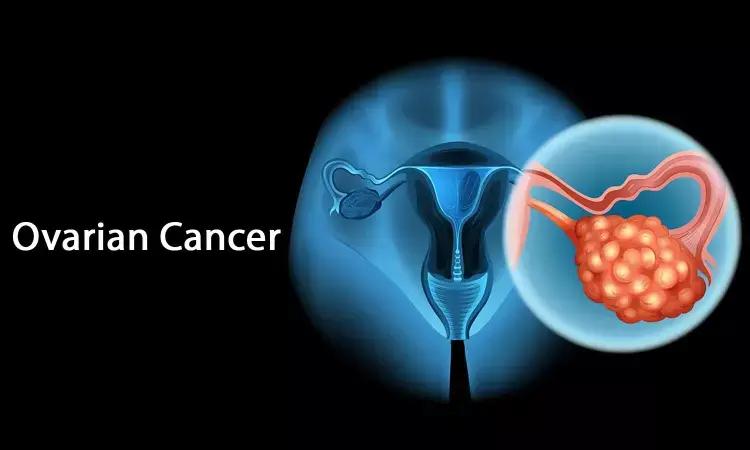Chemotherapy More Effective In Relapsed Ovarian Cancer When Coupled With Cytoreductive Surgery: NEJM
- byDoctor News Daily Team
- 16 July, 2025
- 0 Comments
- 0 Mins

Delhi: A new study conducted by Philipp Harter and the team shows that cytoreductive surgery followed by chemotherapy resulted in longer overall survival in women with recurrent ovarian cancer than chemotherapy alone. The findings of this study were published in the New England Journal of Medicine on 14th November 2019.
Systemic treatment has mostly been used to treat individuals with recurrent ovarian cancer. The function of secondary cytoreductive surgery is unknown. As a result, the purpose of this trial was to see if subsequent cytoreduction would improve overall survival in women with platinum-sensitive, recurrent ovarian cancer who were otherwise surgical candidates.
This trial randomly allocated patients with recurrent ovarian cancer who had a first recurrence after a platinum-free interval of 6 months or more to have secondary cytoreductive surgery followed by platinum-based chemotherapy or to receive platinum-based chemotherapy alone. Patients were considered eligible if they had a positive Arbeitsgemeinschaft Gynäkologische Onkologie (AGO) score, which was defined as an Eastern Cooperative Oncology Group performance-status score of 0 (on a 5-point scale, with higher scores indicating greater disability), ascites of fewer than 500 ml, and complete resection at initial surgery. A positive AGO score is used to identify individuals who may be candidates for full resection. Overall survival was the key end objective. Quality of life and survival predictive indicators were also evaluated.
A total of 407 patients were randomly randomized to one of two groups: 206 were assigned to cytoreductive surgery and chemotherapy, and 201 were assigned to chemotherapy alone. 75.5 percent of the patients in the surgical group who received the operation had a full resection. The median overall survival in the surgery group was 53.7 months and 46.0 months in the no-surgery group.
Patients who underwent a full resection had the best prognosis, with a median overall survival of 61.9 months. Surgery was found to be beneficial in all analyses and subgroups based on prognostic variables. Quality-of-life assessments were not different between the two groups after a year of follow-up, and there was no perioperative death within 30 days following surgery.
In conclusion, subsequent surgical cytoreduction in patients with platinum-sensitive, recurrent epithelial ovarian cancer who met these criteria looks possible, with tolerable postoperative morbidity, although it does not result in longer overall survival than no surgery.
Reference:
Philipp Harter, M.D., Ph.D., Jalid Sehouli, M.D., Ph.D., Ignace Vergote, M.D., Ph.D., Gwenael Ferron, M.D., Ph.D., et al.,Randomized Trial of Cytoreductive Surgery for Relapsed Ovarian Cancer. DOI: 10.1056/NEJMoa2103294
Disclaimer: This website is designed for healthcare professionals and serves solely for informational purposes.
The content provided should not be interpreted as medical advice, diagnosis, treatment recommendations, prescriptions, or endorsements of specific medical practices. It is not a replacement for professional medical consultation or the expertise of a licensed healthcare provider.
Given the ever-evolving nature of medical science, we strive to keep our information accurate and up to date. However, we do not guarantee the completeness or accuracy of the content.
If you come across any inconsistencies, please reach out to us at
admin@doctornewsdaily.com.
We do not support or endorse medical opinions, treatments, or recommendations that contradict the advice of qualified healthcare professionals.
By using this website, you agree to our
Terms of Use,
Privacy Policy, and
Advertisement Policy.
For further details, please review our
Full Disclaimer.
Tags:
Recent News
DME Gujarat extends PG Ayurveda, Homeopathy round...
- 05 November, 2025
NEET counselling: CENTAC publishes round 3 provisi...
- 05 November, 2025
Marksans Pharma UK arm gets marketing nod for Exem...
- 05 November, 2025
Zydus Wellness net sales up by 31 percent in Q2 FY...
- 05 November, 2025
Daily Newsletter
Get all the top stories from Blogs to keep track.


0 Comments
Post a comment
No comments yet. Be the first to comment!